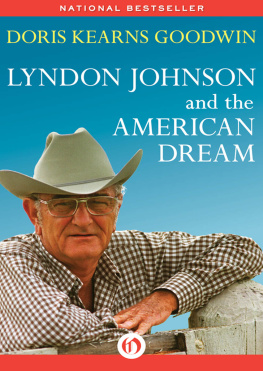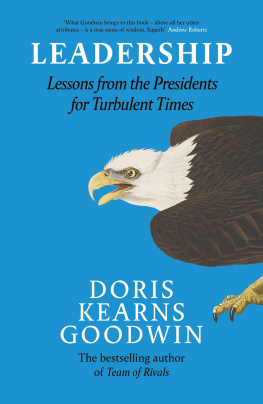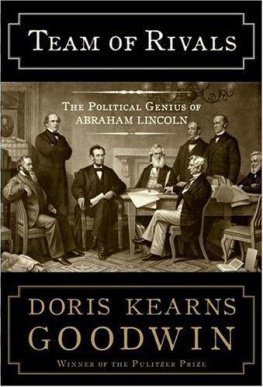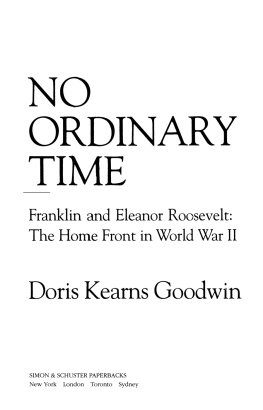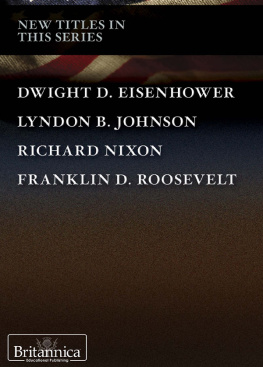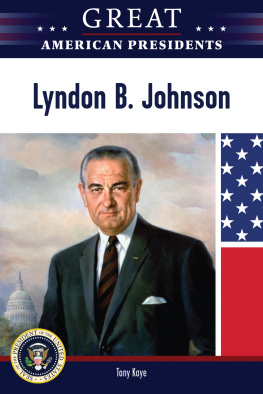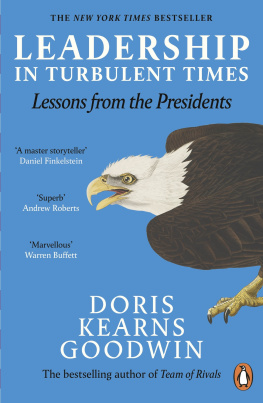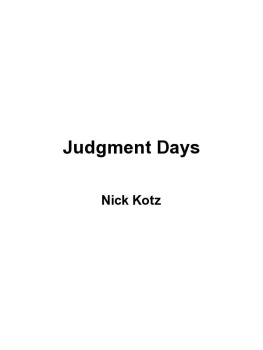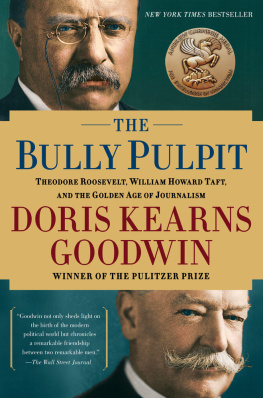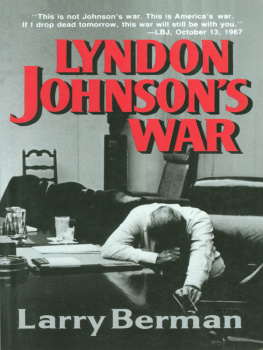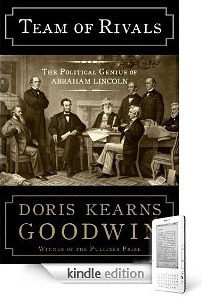Lyndon Johnson and the American Dream
Doris Kearns Goodwin

To the memory of
my mother and father
and to
Richard and Bert Neustadt
PRAISE FOR LYNDON JOHNSON AND THE AMERICAN DREAM
The most penetrating, fascinating political biography I have ever read. No other President has had a biographer who had such access to his private thoughts. The New York Times
Magnificent, brilliant, illuminating A profound analysis of both the private and public man. The Miami Herald
Absorbing and sympathetic, warts and all. The Washington Post
Kearns has made Lyndon Johnson so whole, so understandable that the impact of the book is difficult to describe. It might have been called The Tragedy of Lyndon Johnson, for he comes to seem nothing so much as a figure out of Greek tragedy. Houston Chronicle
Johnsons every word and deed is measured in an attempt to understand one of the most powerful yet tragic of American Presidents. Chicago Tribune
A fine and shrewd book extraordinary poignant the best we have to date. The Boston Globe
An extraordinary portrait of a generous, devious, complex, and profoundly manipulative man Kearns became the custodian not only of LBJs political lore but of his memories, hopes, and nightmares. We have it all laid out for us in this wrenchingly intimate analysis of a man whose virtues, like his faults, were on a giant scale. Cosmopolitan
A grand and fascinating portrait of a most complicated, haunted, and here appealing man. The Village Voice
Vivid No other book is likely to offer a sharper, more intimate portrait of Lyndon Johnson in full psychic undress. Newsweek
Powerful, first rate, gratifying [Goodwin] has proven herself worthy of Lyndon Johnsons trust; for by sharing his fears and dreams with us, she has helped us to understand not just one man, but an era, and ultimately ourselves. Newsday
Foreword
It is more than eighteen years since Lyndon Johnson died, and yet my last conversation with him, two days before his fatal heart attack, turns in my mind as if that formidable, frustrating, fascinating character were still alive. When the phone rang in my Cambridge apartment that raw January morning at 6 A.M., I knew before I answered it that it was he. He would often call before dawn, following a pattern set at the ranch when he would come into my room to wake me up so we could talk before the days activities began. His voice on these occasions was soft, so soft it was sometimes hard to understand but on this morning the pain and sadness in his tone was so striking that I forced myself to comprehend every word.
Listen, he began. Ive been reading Carl Sandburgs biography on Lincoln and no matter how great the books supposed to be, I cant bring Lincoln to life. And if thats true for me, one President reading about another, then theres no chance the ordinary person in the future will ever remember me. No chance. Id have been better off looking for immortality through my wife and children and their children in turn instead of seeking all that love and affection from the American people. Theyre just too fickle.
I tried at first to cajole him from his morose mood by teasing him that from this day forward I would promise to include a question on Lyndon Johnson on every final exam I gave at Harvard so that at
I first met Lyndon Johnson in the spring of 1967 when I was nominated for the White House Fellows program. I was twenty-four years old. The program was designed to allow young people to work as special assistants to the President and members of his cabinet. In a conference house in Virginia, a committee of Cabinet members, government officials, and journalists interviewed the finalists. At the time, I was a candidate for a Harvard Ph.D. in Government preparing for an academic career and I wanted some opportunity for actual experience in government. And yet, at best, my desire to join the Johnson administration was equivocal. So during the interviews I made no effort to conceal my antiwar activities and made it clear I could not work on anything to do with the war, but believed strongly in the domestic programs of the Great Society, particularly in the area of civil rights. These admissions did not seem to perturb the committee, many of whom, like John Oakes, editorial page editor of The New York Times, and John Gardner, Secretary of the Department of Health, Education, and Welfare, were themselves opposed to the war.
My selection was to be announced in a White House ceremony the first week of May. A month before, I had coauthored an article for the New Republic. This essay, How to Remove LBJ in 1968,the New Republic chose the titleargued for a new political party to be formed from an alliance of blacks, poor, the lower middle class, and womena party that might give a voice to the presently unrepresented and, at the very least, bring about the removal of Johnson, Rusk, and Rostow from power in the American government by splitting the normal Democratic vote and ensuring victory for a Republican party which, we assumed, scenting victory, will avoid their urge to nominate Nixon or Reagan. The reasoning is a clear demonstration that purity of intention is no substitute for political knowledge.
A week before the article was to appear, on May 7, 1967, I went to the White House for the ceremony and the dance that would follow. There, I first met Lyndon Johnson. He was already in the ball-room when I entered. His appearance startled me. The picture in my mind had been a caricature: the sly televised politician, his features locked into virtual immobility, eyes squinting, ears that seemed to dangle like thick pendants affixed to the sides of his head. Now I saw a ruddy giant of a man with a strong mobile face, and a presence whose manifest energy dominated an entire room filled with Senators, Representatives, Cabinet officials, White House staff members, and reporters. Beginning each dance with a different woman, he moved gracefully across the floor.
My turn to dance with the President came in the middle of the evening. He walked up to me and began to talk. Do your men ever dance at Harvard? he teased. Of course they do, I said. Bull, he responded. I know what goes on up there. And I bet they cant dance like Im dancing right now. With that, he started to move me in wide circles around the floor. I have one question, he asked suddenly. Do you have a lot of energy? Its important for me to know. Well, I replied, surprised at how easy it seemed to make small talk with him, I hear you only need five hours of sleep, but I need only four so it stands to reason that Ive got even more energy than you. In fact, I continued, even more surprised to find myself confiding in him, I hate going to bed at night and I love waking up in the morning.
Abruptly, Johnson interrupted to say that at my age he had also hated to sleep, but now his burdens with the war were such that sleep represented a welcome escape.
The dance ended, but as Johnson moved away, he said in a loud whisper that he had already decided that I should be the White House Fellow assigned to work for him on the White House staff.
It was not to be that simple. The next week the issue of the

